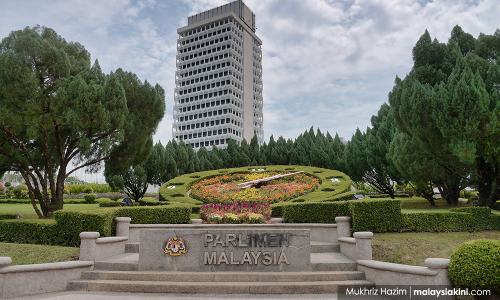LETTER | Don't diminish importance of Parliament amidst pandemic crisis
LETTER | Malaysia had declared a state of emergency and suspended its Parliament in January 2021 in response to the Covid-19 pandemic, and this had created widespread concerns.
The Covid-19 outbreak had disrupted the economy - both the supply and demand side. While acknowledging the government's obligation to protect its citizens, the question arises: has the government gone beyond the "extent strictly required by the exigencies of the crisis?" (Brannigan and McBride v United Kingdom 1993).
Both the Covid-19 pandemic and the suspension of Parliament are putting human rights to the test. Every citizen has the right to take part in the conduct of public affairs in a democratic society, directly or through elected representatives, under international human rights law.
The suspension of Parliament encroaches upon this right because elected representatives were prevented from representing their constituents. Measures taken are limited to what is strictly necessary to manage the pandemic. But the pandemic should not diminish the importance of democracy.
Parliamentary oversight is the key to the accountability process of an emergency measure. The suspension of Parliament on emergency grounds had resulted in a worrying shift in the practice of democratic debate and scrutiny.
It opens the way to abuse and the overreach of executive powers. The government controversially amended the Emergency Ordinance to allow spending without getting approval from lawmakers in Parliament or the state assemblies in late March 2021, leading to a lack of legislative oversight.
Hence, the concentration of power in the executive has the potential to undermine democratic deliberation at a time when more, and not less, accountability is required.
An accountability mechanism is needed to enhance broader democratic accountability. Malaysia should learn from other countries to ensure greater democratic accountability while managing the pandemic.
Take Singapore, our neighbouring country. The speaker of the Parliament there, Tan Chuan-Jin, made a strong statement justifying the continued sitting of Parliament: "We also need to be socially closer to our citizens, to hear and speak their voices here, to provide them comfort, hope and confidence.”
Moreover, the House of Commons in the UK continues to go about its business. Members of Parliament who could not be physically present could still carry out their work remotely.
Hence, Malaysia should strive to adopt a long-term strategy for the management of the pandemic that does not rely on continued restrictions.
With the advancement of digital technology, especially during the Covid-19 pandemic where people could work from home, a virtual sitting of Parliament may be necessary to pass emergency legislation.
It is becoming clear that Covid-19 restrictions will be in place for a considerable period of time. It is therefore imperative that democratic scrutiny adapts to this new health environment while staying robust.
We would not want to wake up in a new world where human rights, accountability and democracy have lost all significance.
While the government is trying to minimise human-to-human transmission of Covid-19, we must not diminish the importance of democracy.
It is vital to reconvene Parliament, be it virtually or with appropriate distancing in the House, for MPs to exercise their legislative and oversight functions during the Covid-19 crisis.
The views expressed here are those of the author/contributor and do not necessarily represent the views of Malaysiakini.
RM12.50 / month
- Unlimited access to award-winning journalism
- Comment and share your opinions on all our articles
- Gift interesting stories to your friends
- Tax deductable
